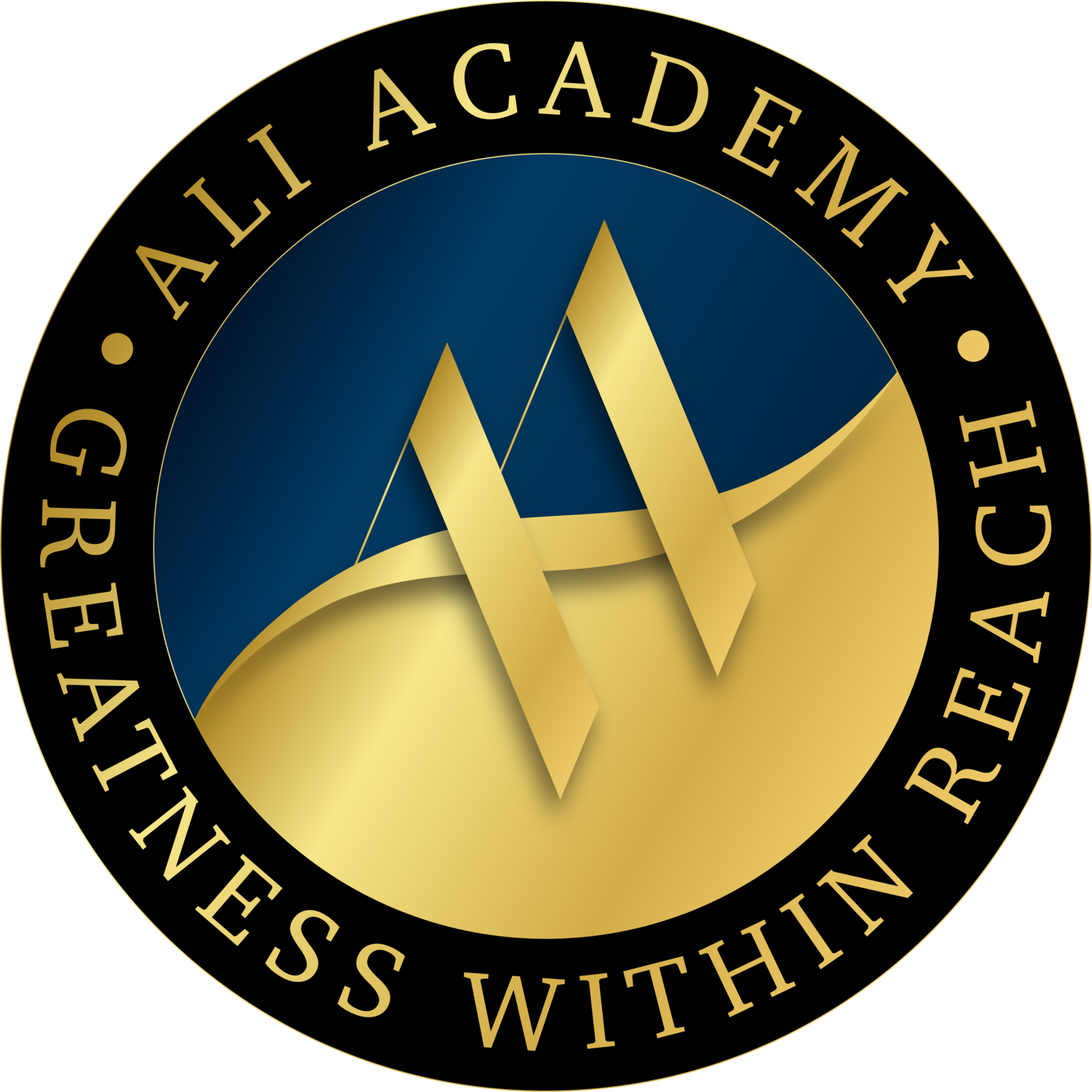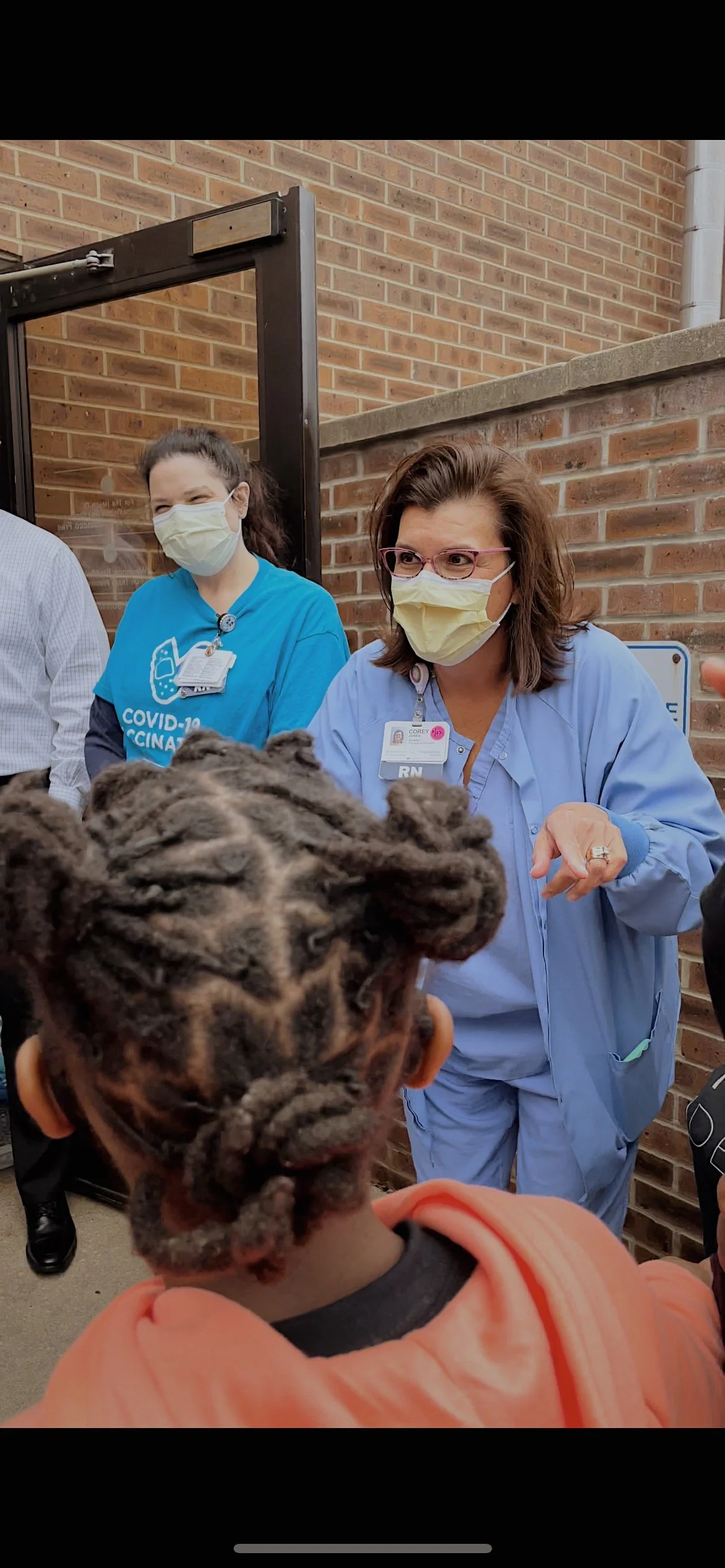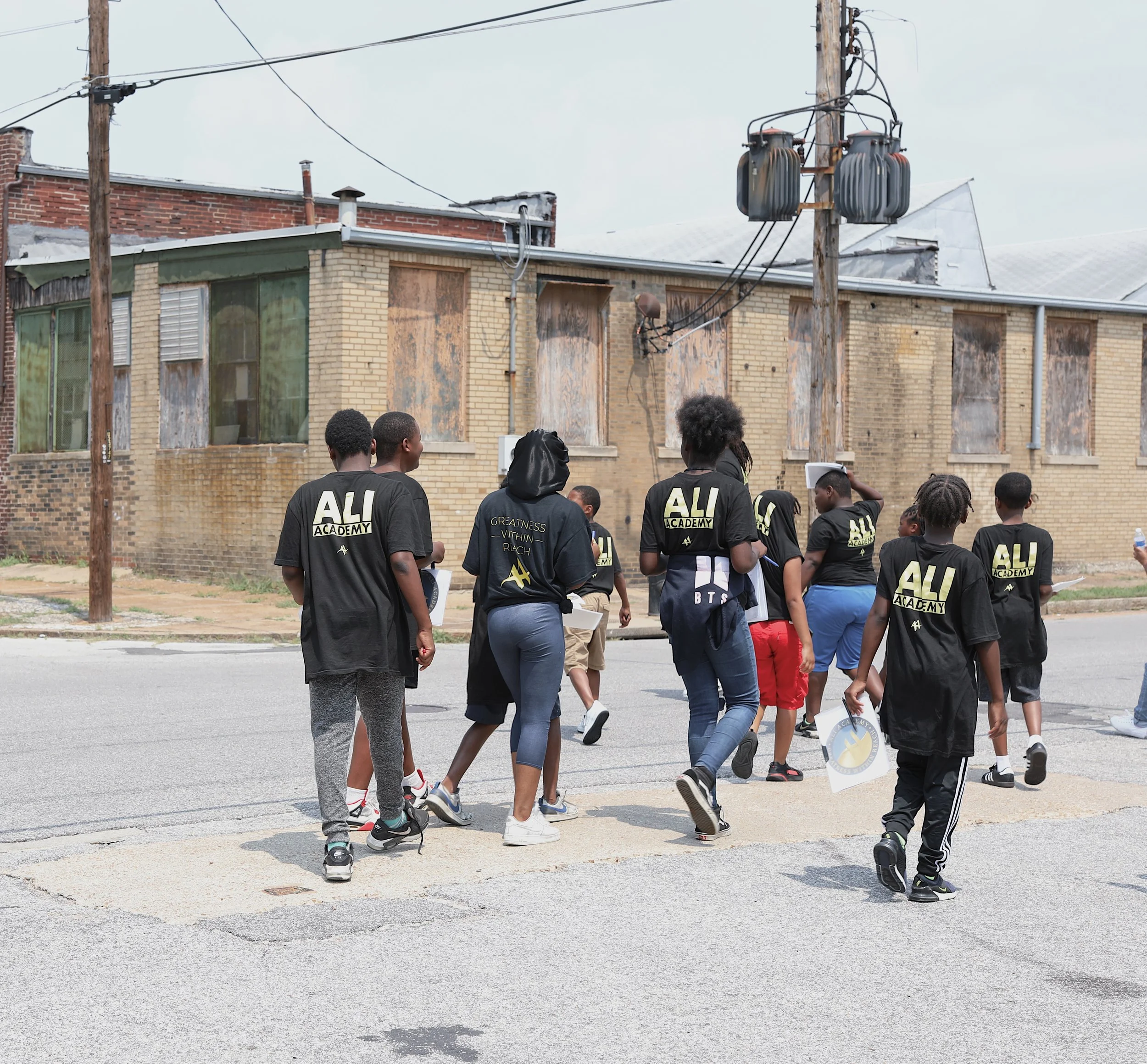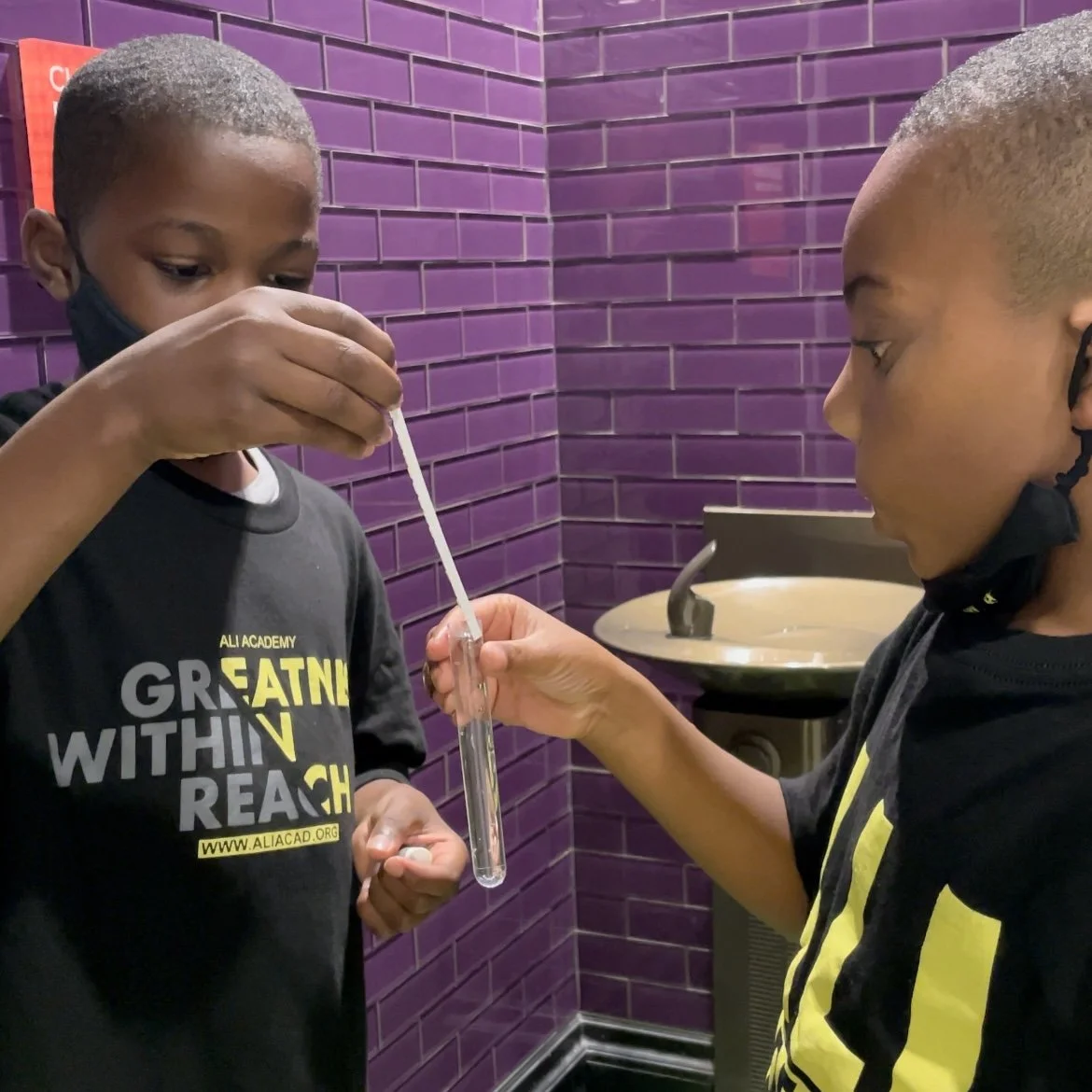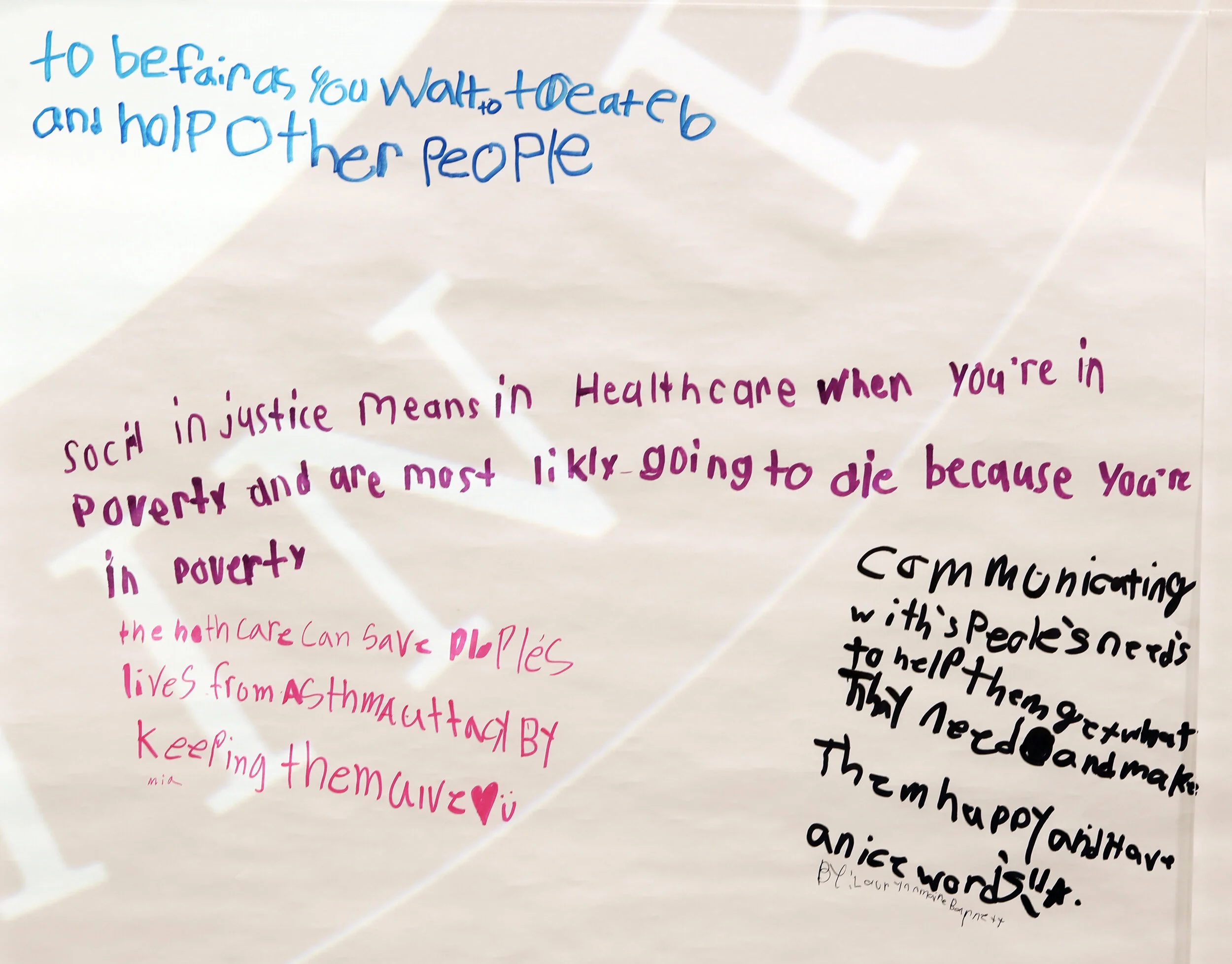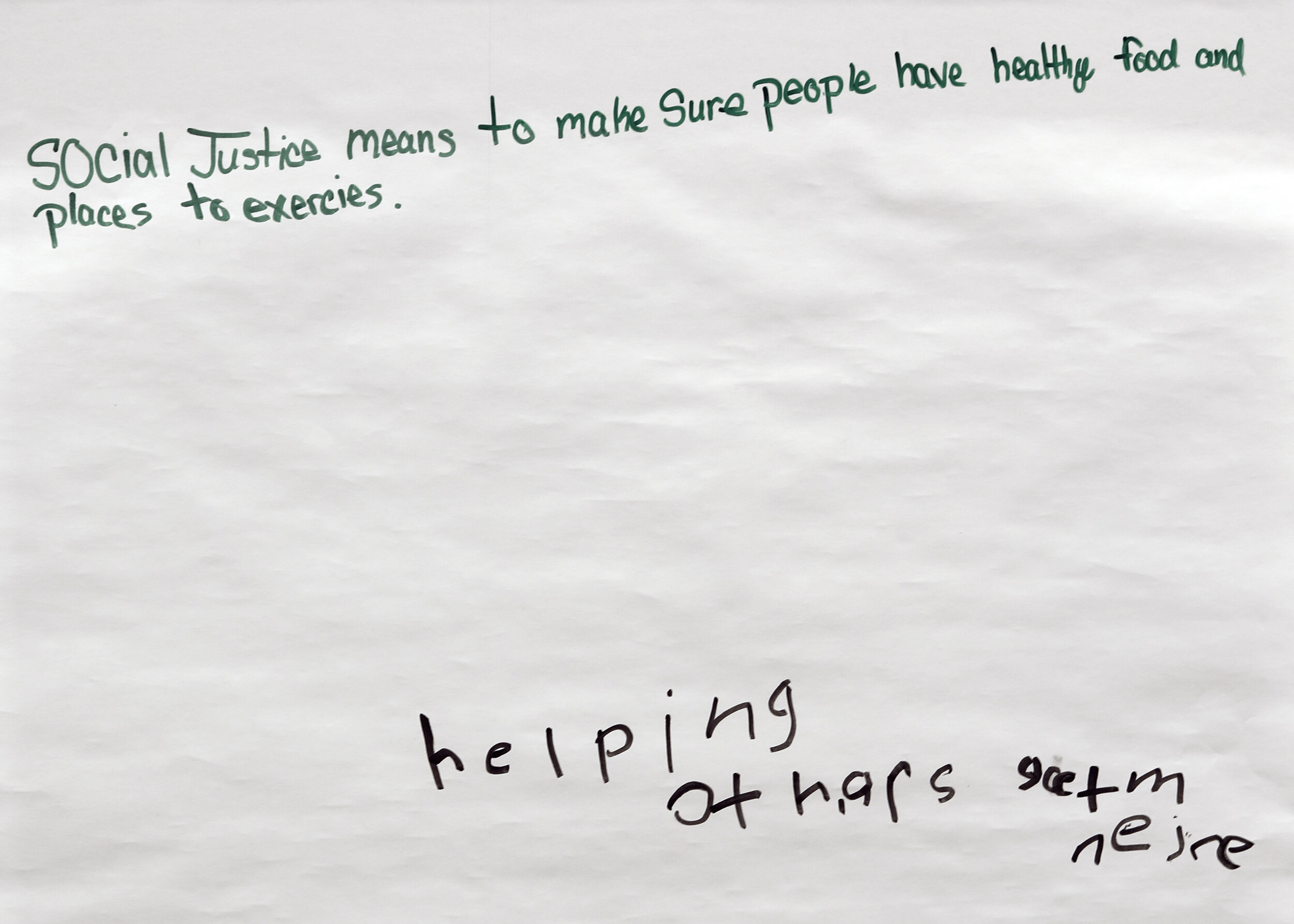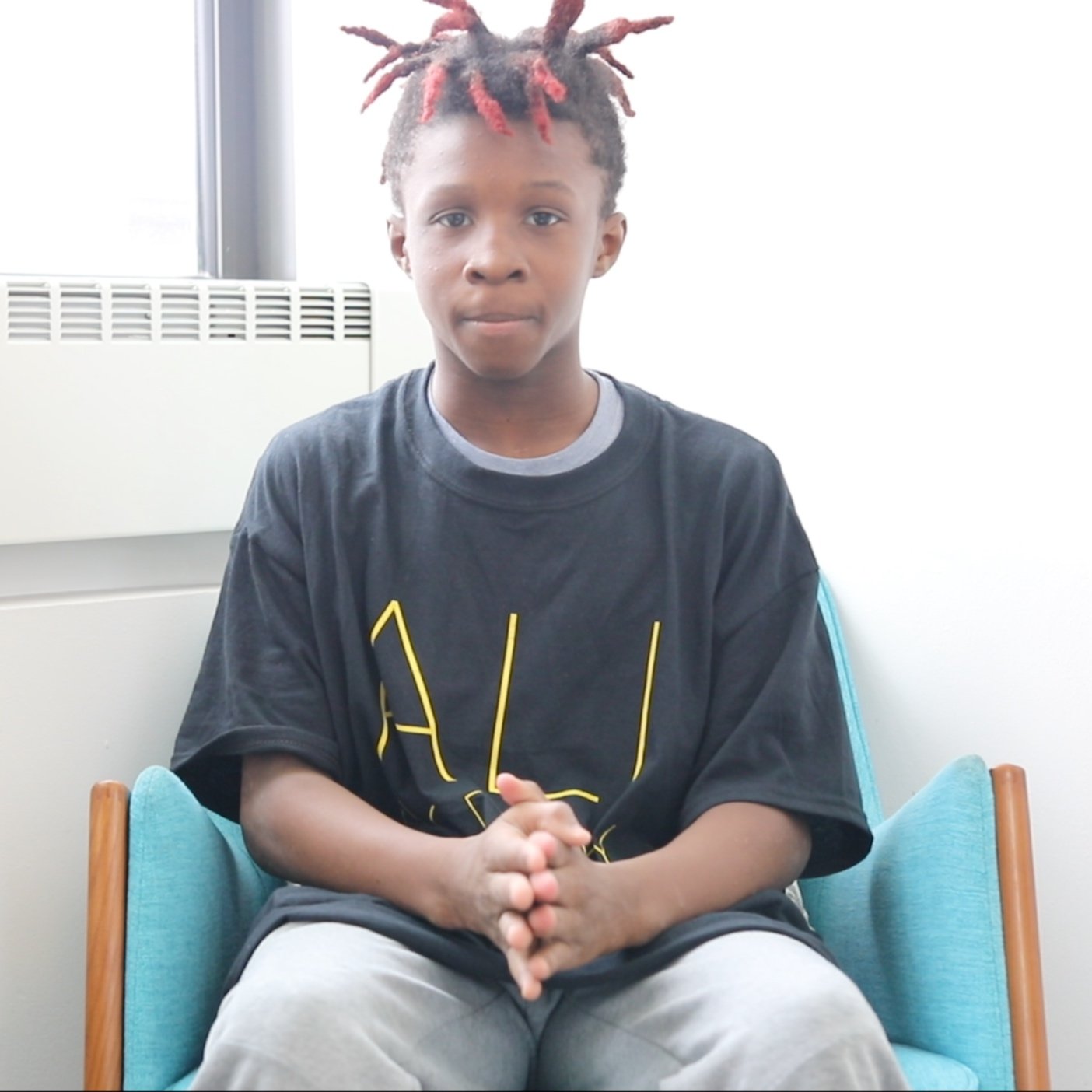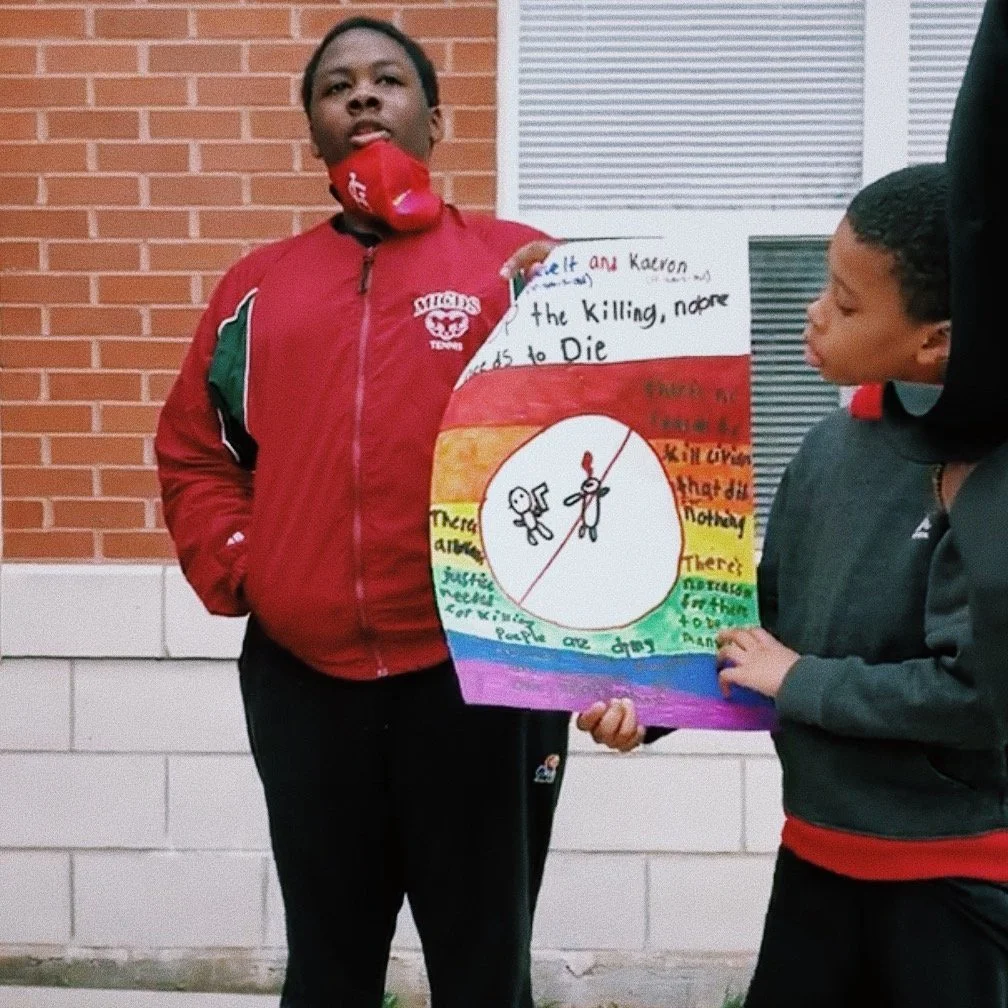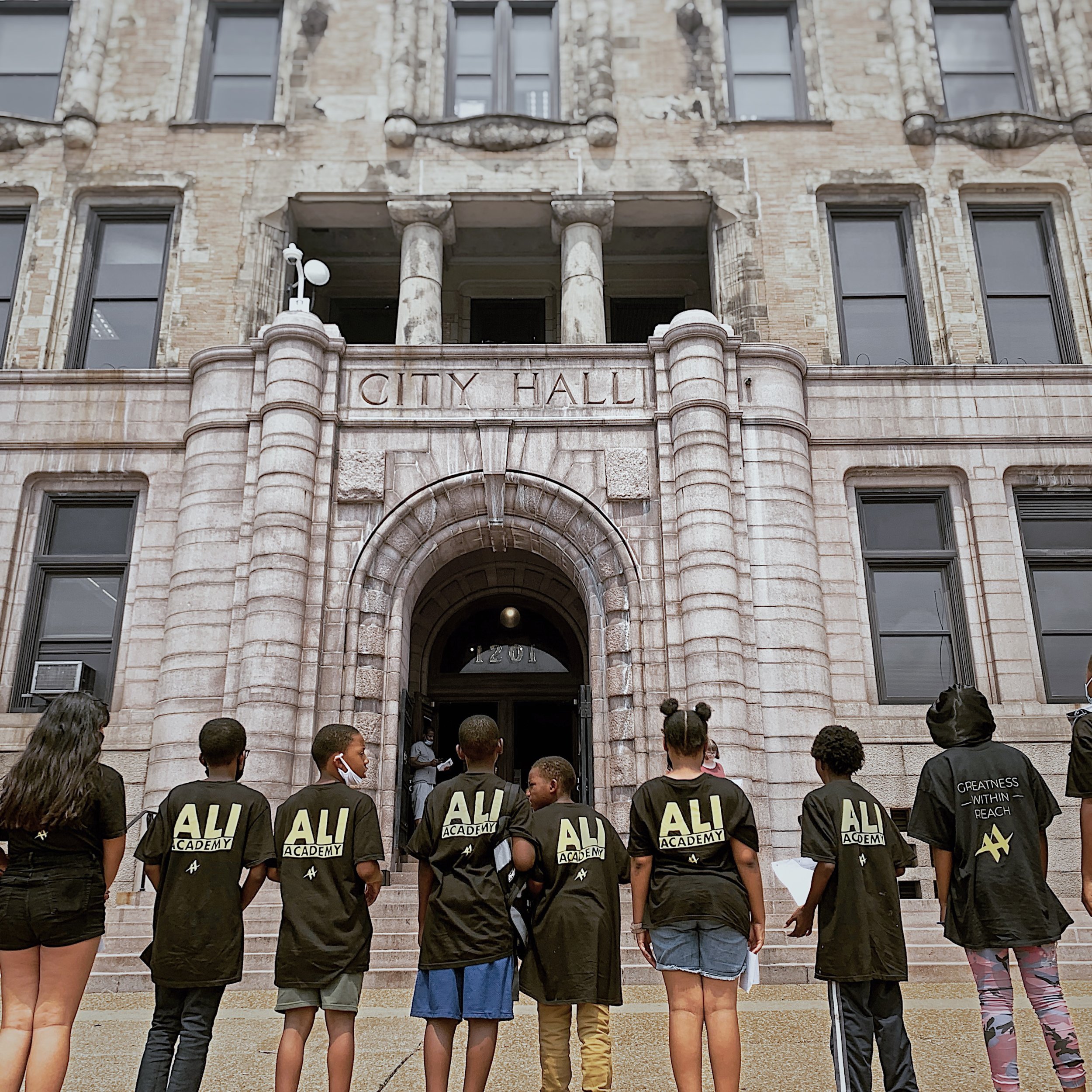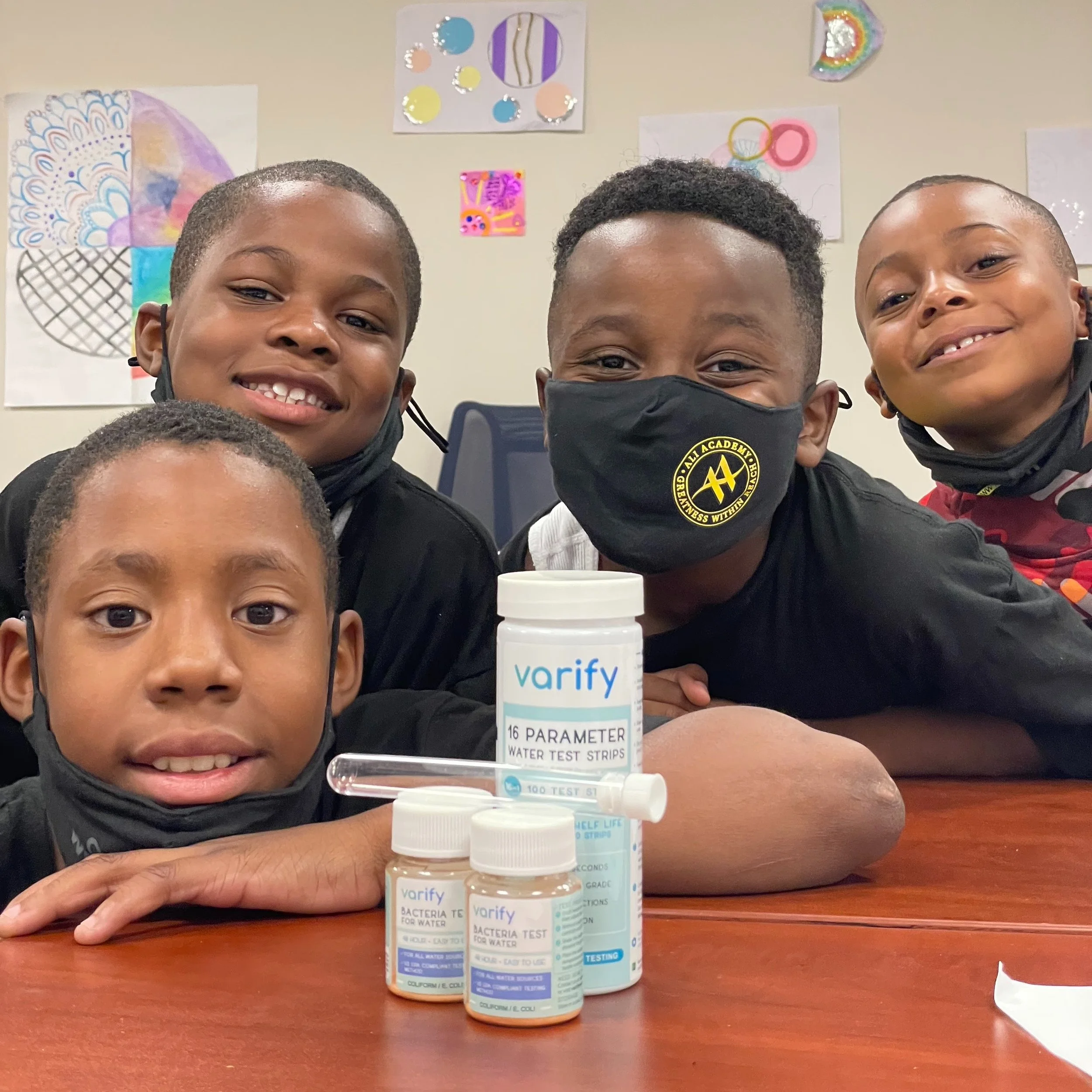
This is Ali Academy
Get a glimpse into what every day at Ali Academy will look like.
In the last two years, we have had the pleasure of hosting four successful Social Justice Camps
Traditional educational models teach kids specific skills and knowledge, and then hope, that some day, these skills can be applied to something meaningful. We flip the model. We start with relevant, social justice issues that affect the lives of our children and/or careers that they can use to economically empower themselves, their families, and their communities, and work backwards to learn the skills and attain the knowledge necessary to make that change or start that career.
Anti-Violence, Healthcare & Suicide Prevention
Unlike your typical spring break camp, scholars got to dream. They dreamed of a better world. They dreamed of a world without suicide, a world where everyone had access to health care, and a world where everyone was free from violence. They then set out to make those dreams a little bit more real. Scholars studied issues in health care and housing in St. Louis. They also learned how to read graphs and statistics so they could have a better understanding about the challenges we face in society. We explored careers in each area, talked to doctors and nurses, housing developers, city officials, and police officers, and took action to achieve social justice.
Our Neighborhood
During our Summer 21 Justice Camp scholars dreamt of better neighborhoods. We visited differing communities and read about what makes a strong neighborhood. Scholars identified affordability, walkability, safety, beauty and recreation as key aspects of their ideal community. They then went to the Mayor’s office to discuss what could be done to make these types of neighborhoods a reality for every St. Louisan.
The Safety of Our Water
Our scholars learned about environmental justice and particularly the safety of their drinking water. They learned where their water comes from, how it is made safe, and who is responsible for its safety. They learned about the dangers of lead in drinking water and tested schools, libraries, and some of their own homes. When they found elevated levels of lead in one school’s drinking water, they notified the Mayor’s office and the mayor sent health inspectors to officially test the water. Fortunately, the official test came back negative for elevated levels of lead. But for these children, some as young as 8, they realized that their knowledge, care and action, can move even powerful politicians to address their concerns. Imagine what these kids will do when they’re 18?
What is Social Justice according to our scholars?
Social Justice In Action… Not Theory
We take Social Justice out into real world by letting our scholars use their knowledge and skills in the service of humanity. Whether that’s discussing how everyone can get healthcare regardless of their ability to pay or asking the mayor’s office to test schools for lead contamination. This is what Social Justice looks like - children being empowered to fight for what they think is right.
Field trip to Barnes-Jewish St. Peters Hospital. Scholars had questions about a man that died in their parking lot after being denied treatment. They had questions about racism in health care and who is entitled to care. The staff and President Gina Calder took time to answer their important questions and have a conversation - Spring ‘21’ Justice Camp
Scholars went to the downtown police station to share their thoughts on racism and police brutality with Officer Mueller of SLPD. They made posters to show what they had talked about earlier around the violence in St. Louis and how it needs to change - Spring ‘21’ Justice Camp
Andrew decided to make a public service announcement letting those who may be suffering from bullying and or abuse that there is help available for them - Spring ‘21’ Justice Camp
Some scholars created an anti-violence campaign starting in their neighborhood encouraging community members to put down the guns and not resort to violence to solve problems - Spring ‘21’ Justice Camp
Scholars went to City Hall and the Mayor’s office to talk to the Mayor about the necessities of affordability, walkability, safety, beauty and recreation for every neighborhood in St. Louis - Summer ‘21’ Justice Camp
Scholars talked to local business owners in the community in order to determine how to economically empower neighborhoods with jobs and quality services - Summer ‘21’ Justice Camp
Scholars toured various neighborhoods in St. Louis in order to identify what ideal neighborhoods should look like - Summer ‘21’ Justice Camp
Scholars pose with their lead testing kits. They tested schools, libraries, and their own homes for lead contamination in the water - Fall ‘21’ Justice Camp

